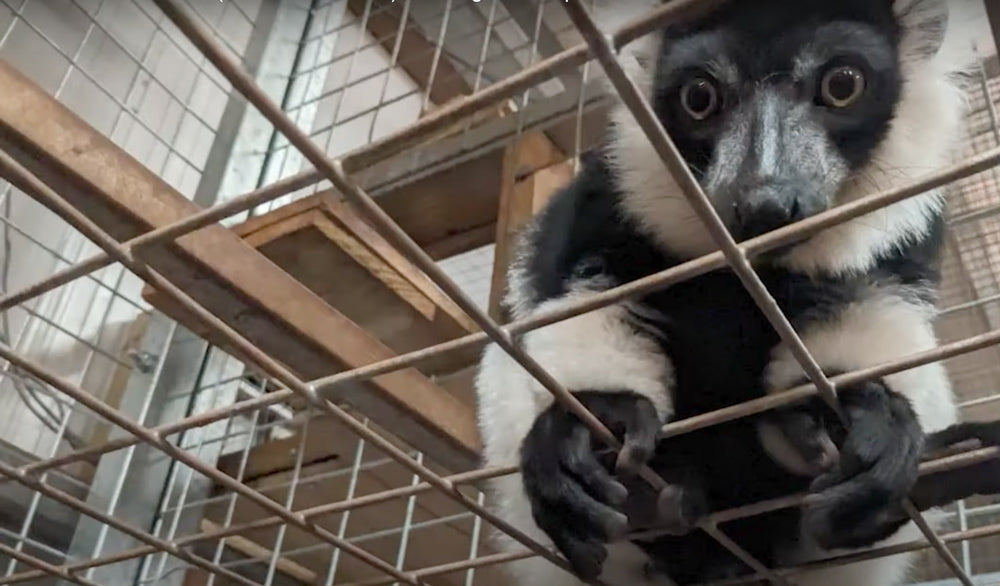UK Zoo Accused of Letting Animals Suffer in Overcrowded Pens
Matthew Russell
South Lakes Safari Zoo in Cumbria, England, faces renewed scrutiny over animal welfare concerns and allegations of a toxic work environment. Despite promises of reform under new management in 2017, former employees and animal rights groups claim the zoo continues to operate under deeply troubling conditions.

Photo: Wikimedia Commons / The Shaun Woods, License: CC BY 2.0
Animal Welfare Concerns Persist
The zoo’s troubled history stretches back to its previous owner, David Gill, under whose leadership nearly 500 animals reportedly died between 2013 and 2016. In 2017, the Cumbria Zoo Company Limited (CZCL) assumed management, pledging improved animal care standards. However, evidence suggests significant issues remain.
Former employees have provided disturbing accounts, including overcrowded enclosures leading to aggression and injuries among animals. Photographs and videos obtained by the BBC show harrowing scenes: a zebra with its hoof stuck in pen bars, later euthanized; a capybara with lacerations from fights; and a giraffe with a bloodied head from hitting pen bars during public feeding sessions, BBC reports. Overcrowding has reportedly resulted in inbreeding, further complicating animal welfare.
In one particularly shocking incident, a peacock entered the otter enclosure and was violently killed in front of visitors. Another report describes a meerkat struggling with emaciation in a cold pen, according to The Independent.

Photo: YouTube / Freedom for Animals
Inspections Paint a Mixed Picture
Westmorland and Furness Council inspections have revealed troubling findings, including rhinos confined to small, dirty stalls for prolonged periods and inconsistent access to food and water. Behavioral issues such as pacing and aggression have been attributed to these conditions. Despite these issues, a June 2024 follow-up inspection noted compliance with 26 of 28 improvement directives, reports the BBC.
Animal welfare group Freedom for Animals claims that conditions have not significantly improved, calling for the removal of all animals to accredited sanctuaries, The Independent reports.
Allegations of a Toxic Workplace
Employees have also accused the zoo’s management of fostering a toxic work environment. Former staff described a culture of bullying, with public humiliation during meetings and frequent instances of workers leaving in tears. As One Green Planet reports, high turnover rates exacerbated the challenges of maintaining proper animal care.
Zoo management denies these allegations, asserting that staff concerns are investigated thoroughly. Karen Brewer, CZCL’s chief executive, has attributed some of the criticism to a legal dispute with Zoo Investment Company (ZIC), which owns the zoo’s land. Brewer has accused ZIC of undermining the zoo’s operations with a "malicious campaign," according to the Daily Mail.

Photo: Wikimedia Commons / kaytronika, License: CC BY 2.0
Advocates Call for Action
Calls for action have intensified, with animal welfare organizations urging the council to revoke the zoo’s license. However, local authorities have stated that current laws limit their ability to close zoos unless severe conditions are proven, the BBC reports.
Freedom for Animals has condemned the zoo's continued operations, describing it as a gross breach of the Animal Welfare Act and the Zoo Licensing Act. “It is appalling that animals in this country are being treated this way,” a spokesperson told The Independent.
The Path Ahead
Despite the allegations, CZCL maintains that its veterinary program is internationally recognized and that independent inspections have consistently approved its standards. The zoo has also begun relocating some animals to a new site at Brockholes Farm in Tebay, though critics argue this does little to address systemic issues, BBC reports.
As pressure mounts from animal welfare advocates and former employees, the future of South Lakes Safari Zoo remains uncertain. For now, the voices of the animals and the workers who care for them continue to ring out, demanding change.
Click below to take action for animals at the South Lakes Safari Zoo!

